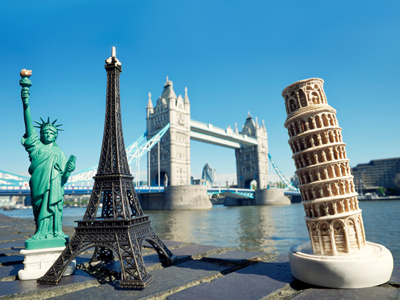
No, Thank You - Polite Negative Expressions
Quiz playing is a wonderful way to increase your knowledge of English as a Second Language. Remember that all of our ESL quizzes have titles that are both friendly and technical at the same time… In the case of this quiz you might like to tell your friends about “No, Thank You” but no doubt your teachers will talk about the “Polite Negative Expressions quiz”! If you hear a technical term and you want to find a quiz about the subject then just look through the list of quiz titles until you find what you need.
No, thank you is a polite negative expression.
If you happen to be coming to England from the Far East, you will be well familiar with the thought of 'losing face’: when one or both people in a communicative situation might become embarrassed and/or uncomfortable as a result of something somebody does or says (or, possibly, doesn't say or do).
You needn't specify who has forbidden this to you: it may be obvious, or perhaps a private medical matter that you are not obliged to disclose in detail in a social context, such as round the table.
'You wouldn't like some of this sago pudding, would you?'
' ... ... . '
Answer 2 is clear, but rather blunt and therefore sounds somewhat rude. Much of Answer 3 is 'filling', but it makes your refusal softer and more socially acceptable.
Answer 4 is far too strong to be polite.
'How would you like to come para-skiing at the weekend?'
' ... ... '
Answer 2 may well be true, but nobody will feel particularly comfortable if you say so.
Answer 3 is a perfectly reasonable delaying tactic ~ 'buying some time' ~ but clearly they will need a firmer answer before long, in order to confirm the logistical arrangements (whether or not you will be joining them).
Answer 4 remains the clearest, even if it does not explain any reason. That's all they asked you, in the first place; and if your answer is negative, why should the reasons for it matter particularly?
'How about going dog-racing tomorrow night? Have you ever been to a dog-track before?'
' ... ... .'
For the purposes of this Quiz, we 'aren't saying Yes', so Answer 2 is irrelevant.
Answer 3 turns down the offer, but hints about a more friendly answer in the future (even if both people are fairly sure that it isn't seriously true).
Obviously, if the situation were to 'turn ugly' you would probably say something else which we might prefer not to put here, and/or begin shouting, and/or run away as fast as you can.
Answer 2 (or something like it; ' ... or were you only joking, anyway?') might be polite and clear but not too confrontational.
Answer 3 is probably too much to remember clearly in a sudden and worrying situation, but it's the sort of thing a self-confident native speaker might use.
Answer 4 is good and clear, but it may be worth a 'softer' deflection before you say anything as harsh as this yourself.
We certainly do not wish to suggest, in this Quiz, that you are any more likely to find yourself in a difficult situation in Britain than elsewhere in the world ~ but we hope this has opened your eyes to some more of the ways of saying 'No', with various levels of clarity, politeness and subtlety.
Ready for more?
not all...
quizzers. Try to win a coveted spot on our Hall of Fame Page.








Answer 4, clearly, is just plain rude.